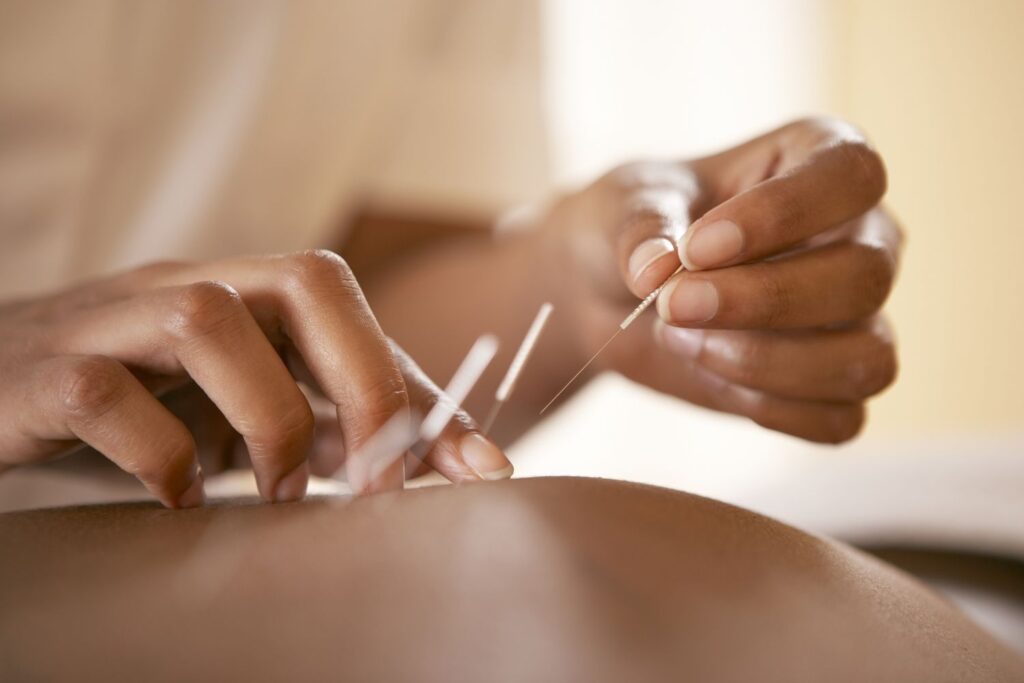Acupuncture Orillia Fertility: Boost Fertility with Expert Acupuncture Treatments

In recent years, the pursuit of alternative and complementary therapies has gained momentum in the realm of reproductive medicine. Among these approaches, acupuncture has emerged as a potential adjunctive treatment for individuals grappling with fertility. While traditional fertility treatments such as in vitro fertilization (IVF) and intrauterine insemination (IUI) continue to be the primary interventions, acupuncture has garnered attention for its potential to enhance both male and female fertility.
Acupuncture and Female fertility:
- Regulation of Hormones:
Acupuncture is believed to modulate the endocrine system, contributing to the regulation of reproductive hormones in women. Hormonal balance is paramount for regular menstrual cycles, optimal ovarian function, and successful ovulation. - Improved Ovulation:
Several studies suggest that acupuncture may positively impact ovarian function, leading to improved ovulatory patterns. By promoting a more regular and healthy ovulation, acupuncture could play a role in addressing certain forms of female fertility. - Enhanced Blood Flow to Reproductive Organs:
The promotion of blood circulation to the uterus and ovaries is one of the proposed mechanisms through which acupuncture may exert its influence. Improved blood flow can contribute to better follicular development, a thicker uterine lining, and an overall more conducive environment for conception. - Stress Reduction:
The emotional toll of fertility can be immense, and stress has been linked to reproductive issues. Acupuncture’s well-documented stress-relieving effects may provide emotional support for women undergoing fertility treatments, potentially positively impacting reproductive outcomes. - Support during Assisted Reproductive Technologies (ART):
Acupuncture is often integrated into fertility treatment plans, particularly in conjunction with ART procedures like IVF and IUI. By optimizing conditions for implantation and reducing the side effects of fertility medications, acupuncture may contribute to improved success rates.
Acupuncture and Male fertility:
- Improved Sperm Quality:
Studies exploring the impact of acupuncture on male fertility suggest potential improvements in sperm parameters, including sperm count, motility, and morphology. Enhanced sperm quality is crucial for successful fertilization. - Balanced Hormones:
Acupuncture is thought to regulate hormonal levels in men, influencing the production of sperm and overall reproductive health. Achieving hormonal balance may contribute to better fertility outcomes. - Reduced Oxidative Stress:
Oxidative stress is a known contributor to sperm DNA damage and male fertility. Acupuncture’s antioxidant effects may help reduce oxidative stress, protecting sperm from damage and improving their overall quality. - Enhanced Blood Flow to Reproductive Organs:
Similar to its effects in women, acupuncture may improve blood circulation to the male reproductive organs. Optimal blood flow is essential for supporting the production of healthy sperm. - Stress Reduction:
Stress has been linked to reduced sperm quality and quantity. Acupuncture’s stress-reducing properties may play a role in supporting male fertility by alleviating stress-related factors that could impact sperm health.
Evidence and Studies:

While the existing literature on acupuncture and fertility is promising, it’s essential to note that results are not uniform across all studies. Some trials have reported positive outcomes, while others have shown more equivocal results. The variability in study designs, participant characteristics, and acupuncture protocols makes it challenging to draw definitive conclusions.
- Clinical Trials on Female fertility:
- A randomized controlled trial published in the journal Fertility and Sterility found that acupuncture, when administered in conjunction with IVF, led to a higher live birth rate compared to IVF alone.
- However, another study in the same journal reported no significant difference in pregnancy rates between women undergoing IVF with acupuncture and those without.
- Clinical Trials on Male fertility:
- A study in the Journal of Fertility and Sterility reported improvements in sperm parameters, including sperm motility and morphology, following acupuncture treatment for male fertility.
- Conversely, a different trial published in the Journal of Andrology found no significant impact of acupuncture on sperm quality.
Mechanisms of Action:
The mechanisms through which acupuncture influences fertility are not fully understood, and multiple hypotheses have been proposed.
- Neuroendocrine Regulation:
Acupuncture is thought to influence the release of neurotransmitters and hormones, modulating the body’s response to stress and promoting hormonal balance. - Blood Flow Enhancement:
The insertion of acupuncture needles is believed to stimulate blood circulation, potentially improving blood flow to the reproductive organs and creating a more favorable environment for conception. - Immune Modulation:
Acupuncture may influence the immune system, preventing it from negatively reacting to embryos during implantation. This immune modulation could be particularly relevant for individuals with immune-related fertility issues.
It is Safe when we are Considerations and Precautions:
Before integrating acupuncture into fertility treatment plans, individuals and couples should consider several factors:
- Individual Variability:
Responses to acupuncture can vary among individuals. Some may experience significant benefits, while others may not respond as favorably. The effectiveness of acupuncture may depend on various factors, including the underlying causes of fertility. - Choosing a Qualified Practitioner:
Acupuncture should be performed by trained and licensed practitioners who specialize in fertility-related treatments. Choosing a qualified professional ensures that the treatment is administered safely and effectively.
Conclusion:
Acupuncture’s potential role in addressing fertility in both men and women is a topic of growing interest in the field of reproductive medicine. While there is some evidence suggesting positive outcomes, the variability in study results underscores the need for more comprehensive research to establish clear guidelines and recommendations.
As of now, acupuncture can be considered as a complementary therapy for individuals undergoing fertility treatments. It is essential to approach acupuncture as part of a holistic and personalized treatment plan, recognizing that its effectiveness may vary from person to person. By combining traditional medical interventions with complementary approaches like acupuncture, individuals and couples may have a more comprehensive and integrated strategy to address the multifaceted challenges of fertility.

























